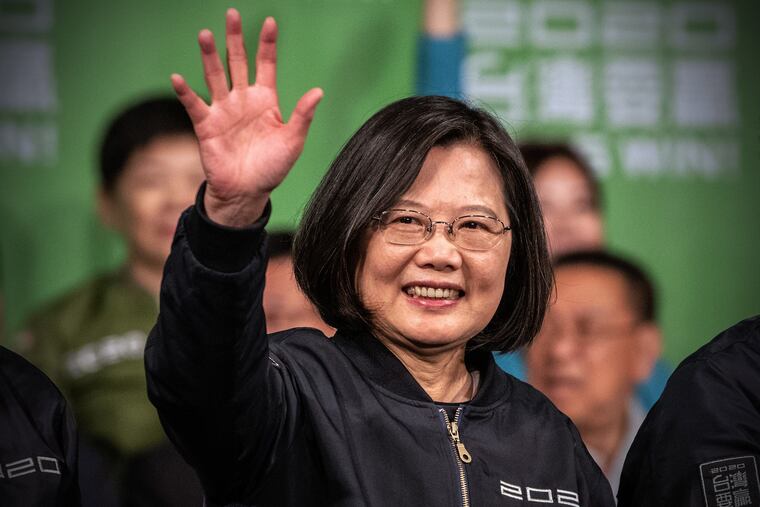U.S., Taiwan sign pact to hold annual economic talks for 5 years
The U.S. and Taiwan signed a memorandum of understanding to establish annual economic talks for five years despite objections by China to Washington’s support for Taipei.

The U.S. and Taiwan signed a pact to establish annual economic talks for five years despite objections by China to Washington’s support for Taipei.
The memorandum of understanding was signed after an inaugural round of economic talks in Washington on Friday. Future discussions will alternate between the U.S. and Taipei, Brent Christensen, director of the American Institute in Taiwan, said in a briefing in Taipei on Saturday.
Both sides agreed that strategic cooperation on the semiconductor industry is a mutual priority, and will push for further collaboration in supply chains, science and technology, 5G and telecommunications security and global health. The talks were led by U.S. State Department Undersecretary of State Keith Krach and Taiwanese minister John Deng.
The agreement can be extended another five years once the current pact is over, Taiwan's Foreign Minister Joseph Wu said, adding he was confident the MOU would be supported by the next U.S. administration.
Secretary of State Michael Pompeo launched the Economic Prosperity Partnership Dialogue with Taiwan in an effort to bolster cooperation. The talks follow repeated calls from Washington and Taipei for negotiations over a formal trade deal with Taiwan.
Last month, 50 senators signed a letter urging U.S. Trade Representative Robert Lighthizer to begin talks with Taipei. Taiwanese President Tsai Ing-wen echoed the call earlier this week, saying a trade deal would further strengthen the complementary nature of the two economies.
Pressure on Lighthizer to begin trade talks has increased since Tsai lifted Taiwan's restrictions on the import of U.S. pork and beef in August, a long-standing impediment to a free-trade agreement with the U.S. Since then, the Taiwanese government, industry groups and U.S. political figures had urged the Office of the U.S. Trade Representative to start talks with Taiwan. The USTR has so far given no indication it intends to do so.
China has repeatedly signaled its displeasure over improving ties between Washington and Taipei. When Krach visited Taiwan in September, China called the trip a political provocation and sent military aircraft over the median line of the Taiwan Strait.
China’s ruling Communist Party in Beijing claims the democratically ruled island as part of its territory despite never having controlled it.